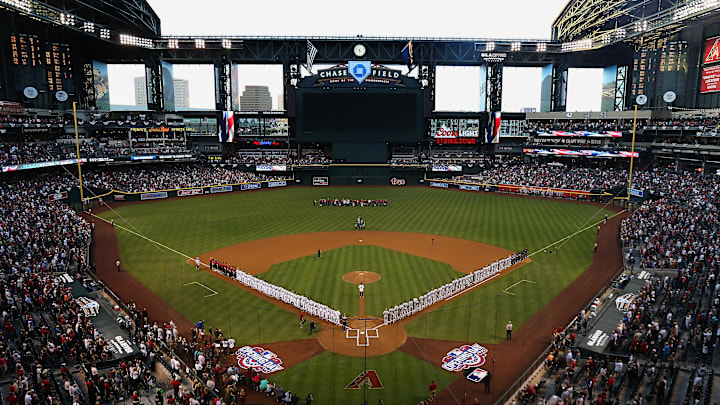
What else has changed in the CBA?
To answer your question, there is now a rule named after a 2021 1st round draft pick Kumar Rocker. He was drafted by the Mets, but the Mets declined to offer him a contract after issues with his medical review. Due to this, there is now a rule in place to prevent it. If a prospect is among the top-300 and submits to a pre-draft physical, then a team that drafts them must be offered a contract that is at least 75% of their draft slot value. Basically, it's to ensure prospects are treated fairly so I like this rule.
Speaking of the draft, the MLB Draft will permanently be 20 rounds. There will be a draft lottery for the bottom 6 teams each year. This is to help prevent tanking. There are rules to it though. Last I heard, if you are a team that is a part of the revenue-sharing terms, then you may only stay in the lottery for a maximum of 2 years back-to-back. If you're in the lottery for a third straight year, you will find your first pick dropped to tenth overall. If you're a team that shares its revenue to the "poorer" teams like the Mets or Dodgers and found yourself in the lottery for two years in a row, you will have your pick dropped to tenth overall. Basically, big market clubs can only have one year in the lottery at a time while small-market clubs can only participate in the lottery two years in a row at a time. The bottom-18 teams will have a percentage out of 100% that goes into a lottery. Think of it like there are 100 ping pong balls and each team gets a certain amount of balls to try to get picked. Here's a tweet showing you the breakdowns.
All 18 non-playoff clubs will enter a lottery for the top six picks. The percentage chances of each team getting the No. 1 choice, in reverse order of winning percentages: pic.twitter.com/lzWR3PeOqW
— Jim Callis (@jimcallisMLB) March 11, 2022
You know how in the past you would guys get optioned 10 times a year sometimes? One day they are on the MLB team, one day they aren't and the next day they back up there? Well that's a thing of the past. In any single season, players can only be optioned to the minor leagues a maximum of 5 times. This is huge for player health, safety, and overall mental health. Now, a player doesn't have to worry about paying for two places to stay at the same time in two different cities. A player has some knowledge of his future and isn't forced to constantly bounce back around time zones on a whim's notice.
For this year only, due to time constraints, there will not be a Rule 5 Draft. Free Agency has already started and the Lockout has been lifted. There might be an International Draft in the future to prevent more corruption from being committed in the International Free Agency system. The two sides agreed that they have until July 25th to agree to the international draft and if that happens, the qualifying offer in free agency will go away. If it doesn't get agreed to, then the qualifying offer will remain.
Arbitration exchanging of numbers for contracts will happen on March 22nd. The Diamondbacks have multiple players that they have to do arbitration with. This is a 5-year CBA so in 2027, we will do this again, without a lockout I hope. Minimum Salaries for players with 0-3 years of service time will start at 700 thousand dollars this year and rise by twenty thousand dollars every year of the CBA ending at 780 thousand dollars in 2026. Due to the rise in rookie pay this year, the Dbacks are estimated to add 2.5 million dollars to the payroll this year.
